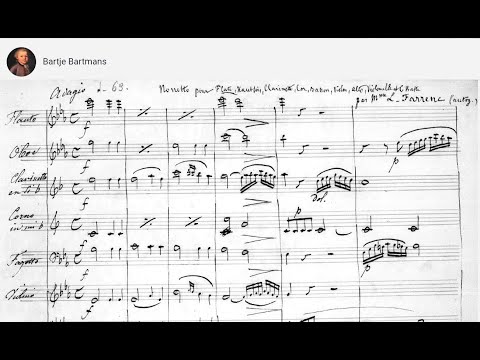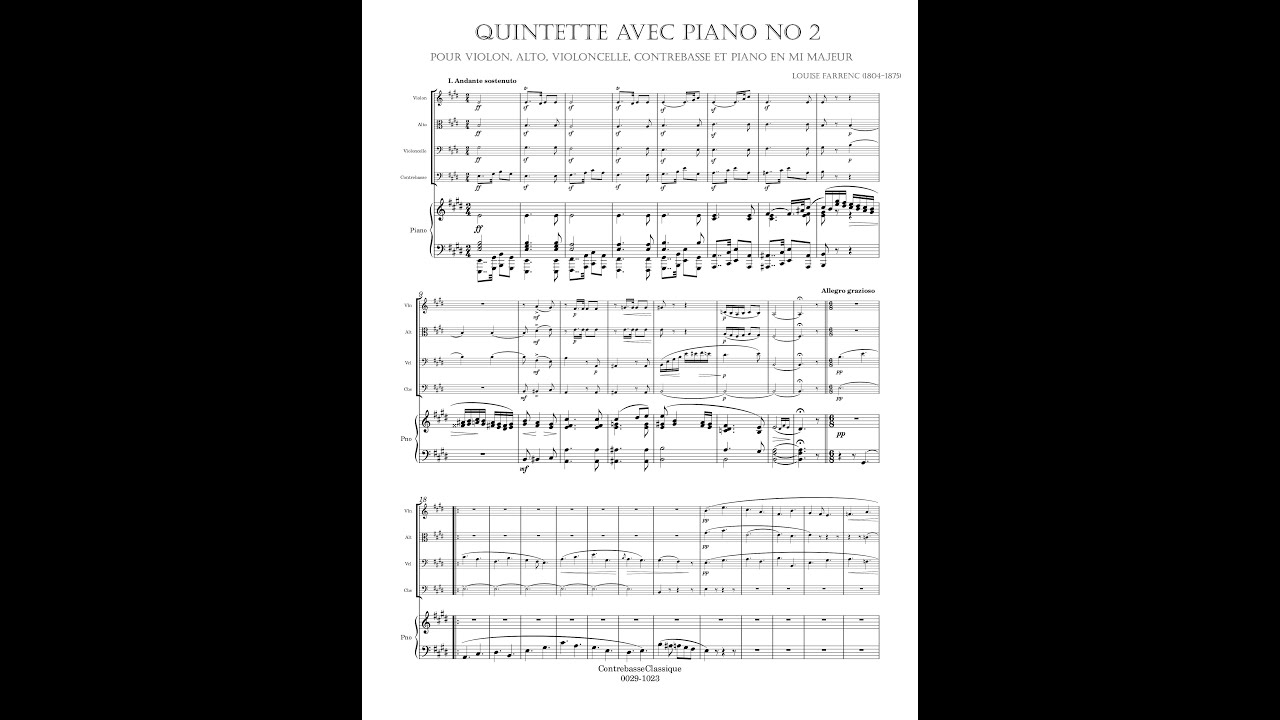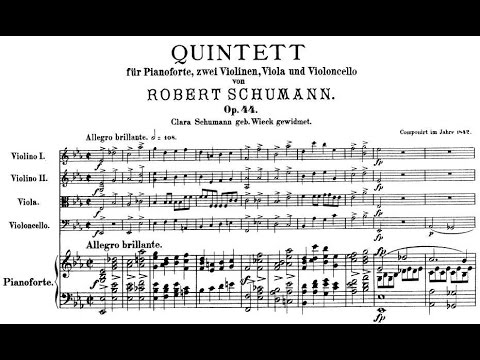Hello Gizars,
In the spirit of this month, as well as my obsession with neglected classical composers, I present…Louise Dumont Farrenc, who may have been even more accomplished than our friends Clara and Fanny:
This was her breakthrough composition, the nonet in E flat, Opus 38 (with her manuscript facsimile):
Also, some of y’all may remember the theme from All Things Considered, which is the exact theme of the opening movement of her Piano Quintet, Opus 31 (1840) which allegedly was totally unknown by the composer of the jingle (another leftie lie??)
Anyway, an interesting “coincidence”.
. Although not mentioned in the article, Robert Schumann may have some ‘splainin’ to do as well, since the underlying theme of his Piano Quintet, finally revealed clearly in the coda of the final movement, is the same theme Farrenc wrote 2 years earlier (without the unique modulation present in the original as well as the NPR theme)  ! :
! :
Here is the full original Farrenc Quintet::
[The Schumann is here]:
A further obscure popular culture reference is that it is the same tune to which is set the key to revealing the secret in the 1945 film Murder, He Says, “On horse flies is / In comb bees is / On chest knob is / In knob keys is” [cannot find a link to the tune]  .
.
Anyway, Louise Farrenc was a fabulous composer and I’m glad that her works are being resurrected now. Enjoy!



